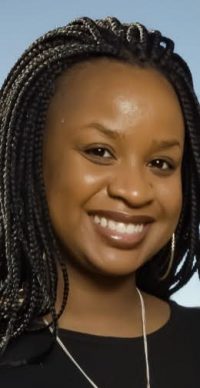UA Little Rock Student Researches How Urban High School Teachers’ Views on Preparing African American Students for College

A University of Arkansas at Little Rock student is researching how urban high school teachers view preparing African American students for college.
Leah Hansberry, who lives in Springfield, Missouri, will graduate from UA Little Rock in December with a Doctor of Education in higher education. Her dissertation is entitled, “Classroom Practices of Urban High School Teacher’s Pedagogy Strategies and Approaches for Preparing African American Students for College.”
Hansberry’s dissertation explored classroom practices through interviews with 10 urban high school teachers regarding their pedagogy strategies and approaches in curriculum development intended to prepare underserved African American high school students for college in an urban school district.
“I thought it would be very interesting to get the teacher’s perspective,” Hansberry said. “They are facing a lot of challenges. Some teachers feel like it’s their job to get students to graduate from high school, not to prepare them for college. The teachers have to meet the standards the school district sets. When it comes to college, the students have to be self-motivated. It doesn’t come up in the classroom as often as it should.”
Dr. Greg Barrett, professor of higher education and Hansberry’s dissertation advisor, said her dissertation resulted in two key findings.
“High school student success is contingent upon having effective teachers,” Barrett said. “High School teachers’ understandings and perceptions of classroom practices regarding how they prepare African American high school students for college were inhibited by not having the teachers do their teaching internships in urban school districts that are similar in school and community contexts socially, economically, and demographically to the urban school district where the study participants work and in which the study was conducted.”
The teachers Hansberry interviewed worked at an urban high school with a more than 90 percent African American student population. Hansberry said that the COVID-19 pandemic was also a detriment to college preparation.
“A lot of teachers felt as if they couldn’t teach the materials because they had so many other things going on in the classroom,” Hansberry said. “With COVID, they had to deal with things like a loss of access to students, or the students not having access to the Internet. Some of the students watched their younger siblings while their parents went to work. Students also didn’t have access to college recruiting fairs and college visits since campuses were closed.”
One of Hansberry’s unexpected findings was the role that athletics can play in motivating students to go to school.
“A lot of the teachers thought students wouldn’t go to college for athletics if the athletic teams at the high school weren’t doing well,” Hansberry said. “Several teachers said the only students who wanted to go to college were the ones who wanted to play college athletics or go pro. If the high school athletic team wasn’t doing well, then students may leave and go to another school with a better athletic program.”
Now that Hansberry is about to graduate, she plans on searching for a higher education administration role in student affairs. Until earlier this year, Hansberry worked as the associate dean of student activities at the University of Arkansas at Pine Bluff until she moved to Missouri when her husband got a new job.
“I knew I wanted to work in higher education administration, and I thought this program would be great,” she said. “It was close to home, fit what I wanted to do with my career, and it allowed me to take classes in the evening.”
Hansberry also comes from a family that greatly values higher education. Her three sisters attended her dissertation defense to celebrate the fact that all four sisters in the family have now earned a doctoral degree.
